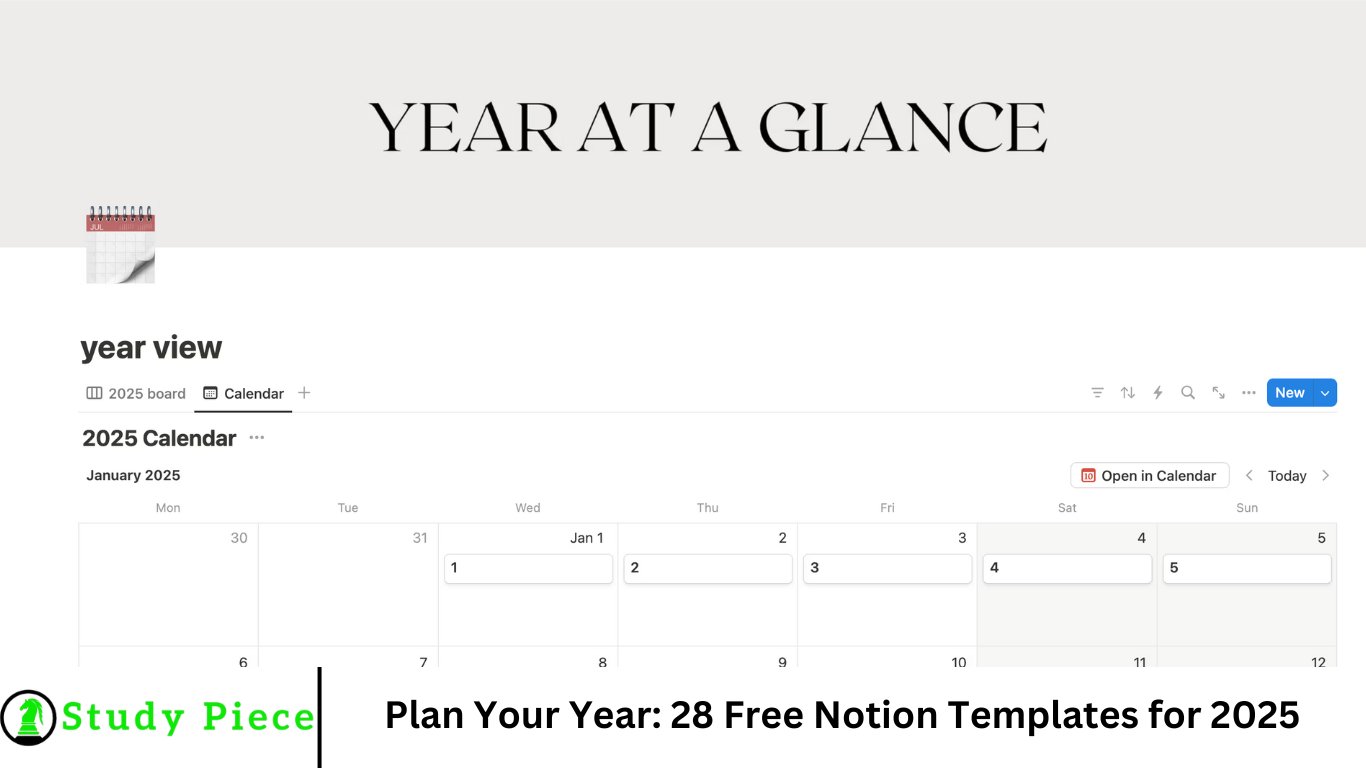In today’s fast-paced world, academic and personal success often hinges on one critical skill: effective time management. At the heart of this is a personalized and powerful study plan—a tool that not only organizes your study sessions but also aligns with your lifestyle, goals, and commitments.
Whether you’re a student juggling multiple classes, a working professional preparing for certification, or someone returning to school after a break, building a study plan tailored to your unique needs can dramatically improve your productivity and outcomes.
In this guide, we’ll break down how to create a personalized and powerful study plan in six clear steps, providing practical tips and expert-backed strategies to help you stay focused, motivated, and in control of your time.
More Read: How to Build a Personalized and Powerful Study Plan in Six Steps
Why a Personalized Study Plan Matters
A study plan is more than just a calendar with tasks—it’s a strategic framework that considers your learning style, energy levels, goals, and personal commitments. Here’s why it’s essential:
- Improves Time Management: You know exactly what to do and when to do it.
- Reduces Stress: Eliminates last-minute cramming and academic burnout.
- Boosts Accountability: Keeps you committed to your goals.
- Enhances Focus: Helps minimize distractions and wasted time.
- Increases Confidence: Structured preparation leads to better performance.
Now let’s dive into the six essential steps to build a study plan that works for you.
Step 1: Assess Your Goals and Commitments
✅ Define Your Academic and Personal Goals
Start by asking yourself:
- What are you studying for? (e.g., final exams, a certification, daily coursework)
- What are your short-term and long-term academic goals?
- Are there personal development goals you want to include (e.g., reading, improving skills)?
Be specific. Instead of saying, “I want to do well in chemistry,” aim for “I want to score at least 85% in my chemistry final.”
📅 Audit Your Weekly Commitments
Create a weekly overview of your time. Include:
- Class schedules
- Work shifts or internships
- Meals and sleep
- Social activities
- Family responsibilities
- Exercise and downtime
Pro tip: Use a time-blocking method to identify your “free” or “flex” hours.
Step 2: Understand Your Learning Style
Everyone learns differently, so understanding your learning preferences helps you study more efficiently.
🎧 Identify Your Learning Type
- Visual learners: Prefer diagrams, charts, videos, and written notes.
- Auditory learners: Learn better through lectures, discussions, and audio content.
- Kinesthetic learners: Retain information through hands-on practice.
- Reading/Writing learners: Absorb more through traditional study methods like reading and note-taking.
🔄 Adapt Study Techniques
Match your study tools to your learning style:
- Use flashcards, mind maps, and color-coded notes for visual learners.
- Listen to recorded lectures or discuss topics with peers for auditory learners.
- Incorporate practice tests, lab work, or teaching others for kinesthetic learners.
Knowing what works for you minimizes time wasted on ineffective methods.
Step 3: Break Down Your Syllabus or Study Material
📘 Divide and Conquer
Break your subject into:
- Units or chapters
- Topics or subtopics
- Tasks (e.g., read chapter, practice problems, review notes)
This process allows you to:
- Track progress easily
- Set micro-goals for each session
- Avoid feeling overwhelmed
🗓 Plan Backward from Deadlines
Once you’ve broken down your material:
- Identify key dates (exams, project deadlines)
- Plan your study timeline in reverse
- Allocate more time to difficult subjects or topics you struggle with
Use digital tools like Notion, Trello, or a simple Google Calendar to create a visual study roadmap.
Step 4: Build Your Weekly and Daily Study Schedule
📆 Create a Weekly Template
Now that you know your goals, learning style, and subject breakdown, it’s time to build a repeatable weekly schedule. Include:
- Study blocks (e.g., 60-90 minutes)
- Review sessions
- Breaks and rewards
- Time for personal tasks
⏰ Use Smart Scheduling Techniques
- Pomodoro Technique: 25-minute focus sessions + 5-minute breaks.
- 90-Minute Blocks: Match natural energy cycles for deeper focus.
- Time of Day Matching: Do harder tasks when your energy is highest (morning for most people).
🚦Prioritize Tasks
Use an ABC or Eisenhower Matrix:
- A: Must-do tasks (urgent and important)
- B: Should-do tasks (important, not urgent)
- C: Nice-to-do tasks (not urgent or important)
Step 5: Add Flexibility and Build in Rewards
🌟 Stay Flexible and Realistic
Life happens. Classes get rescheduled, emergencies pop up, or you may need mental health days. A good study plan:
- Has buffer time built-in
- Allows you to shift blocks around
- Emphasizes progress over perfection
🎉 Add Rewards and Breaks
To stay motivated, incorporate:
- Small rewards (snack, music, 10-minute scroll) after each session
- Bigger rewards (movie night, outing) after weekly goals
- Long-term incentives (e.g., a trip after finals)
Remember: You’re not a machine. Breaks are part of the productivity equation.
Step 6: Review, Reflect, and Adjust Weekly
🔁 Weekly Reflection Questions
At the end of each week, ask:
- What did I complete?
- Where did I fall short?
- What study method worked best?
- What distracted me or wasted my time?
📈 Adjust Your Plan
Use the answers to:
- Reallocate time
- Switch strategies (e.g., flashcards instead of reading)
- Drop what’s not working
- Celebrate small wins
📝 Use a Planner or Digital Tool
Track your progress using:
- Bullet journals
- Digital planners like Google Keep, Evernote, or Todoist
- Study apps like MyStudyLife or Forest
Consistent reviews keep your plan aligned with your real-life needs.
Bonus Tips for Maintaining a Study Plan
✅ Study Plan Success Checklist
- Set SMART goals
- Identify your learning style
- Break down subjects
- Schedule realistic time blocks
- Use study techniques that work for you
- Review and adjust weekly
- Celebrate your progress!
📚 Tools to Supercharge Your Study Plan
| Tool | Purpose |
|---|---|
| Notion | Custom study dashboard |
| Anki | Spaced repetition flashcards |
| Trello | Visual task boards |
| Google Calendar | Time blocking |
| Forest App | Focus with gamified breaks |
| Khan Academy | Free video lessons and quizzes |
Frequently Asked Question
What is the first step in creating a personalized study plan?
The first step is to assess your goals and commitments. This includes identifying your academic or career objectives, listing your daily responsibilities, and figuring out how much time you can realistically dedicate to studying each week.
How do I know which study method suits me best?
Understanding your learning style—whether you’re a visual, auditory, kinesthetic, or reading/writing learner—can help you choose effective study techniques. Experiment with different methods (e.g., flashcards, videos, practice problems) to see what helps you retain information best.
How many hours should I study per day?
There’s no one-size-fits-all number. Most students benefit from 2–4 hours of focused study each day. Quality matters more than quantity, so aim for distraction-free, purposeful study sessions rather than long, unfocused ones.
What if I have an unpredictable or changing schedule?
Build flexibility into your plan by including buffer time and leaving some blocks unscheduled. Use weekly reviews to adjust for changes, and don’t hesitate to reschedule study sessions when needed.
How do I stay motivated to stick to my study plan?
Set realistic goals, track your progress, and reward yourself for meeting milestones. Motivation increases when you see results, so break tasks into smaller steps and celebrate each win—big or small.
Should I study every subject every day?
Not necessarily. It’s more effective to rotate subjects based on your goals, deadlines, and retention needs. Use a mix of daily practice for difficult subjects and weekly reviews for others to stay balanced.
How often should I revise or update my study plan?
Review and adjust your study plan weekly. This helps you stay aligned with shifting priorities, evaluate what’s working, and make improvements to your schedule or methods as needed.
Conclusion
Creating a personalized and powerful study plan doesn’t require perfection—it requires intention. When you align your study efforts with your goals, routines, and preferred learning methods, you set yourself up for success not just in school, but in life. Remember, your plan should evolve as you do. Be consistent, stay flexible, and give yourself grace along the way. With these six steps, you’ll be equipped to take charge of your time, boost your academic performance, and achieve your full potential.



